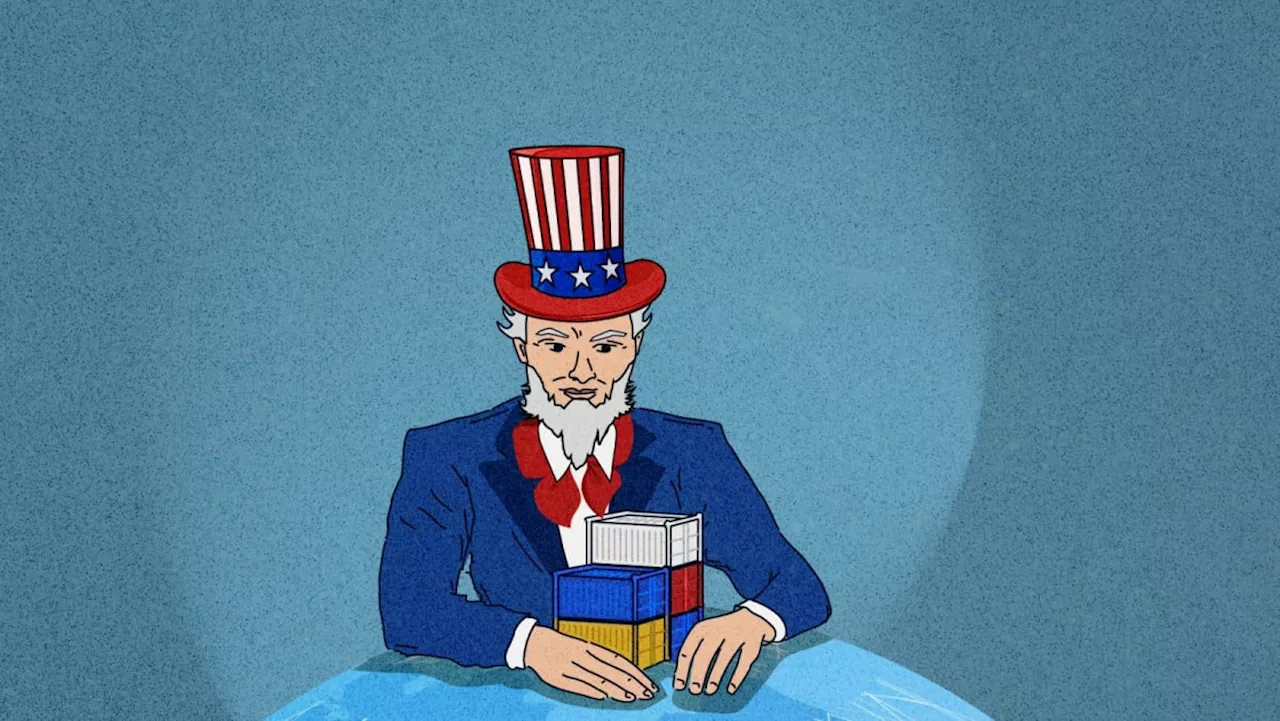Just weeks into his second term in the White House, United States President Donald Trump has introduced a slew of trade policies aimed at exerting political pressure on other countries.
What do these moves towards protectionism mean for consumers and businesses, including those in Singapore?
Mr Trump's latest move could risk further retaliation by major trading countries, potentially disrupting global supply chains, driving up costs for businesses everywhere and creating heightened uncertainty for the global economy, she added. “When we first started in 2002, there were no tariffs and we were paying around 2.9 per cent import tax. But when Trump first came into office ,
His company adapted by absorbing some of the price increases, he said, adding that his clients have since become used to the higher prices under the new “status quo”. At Nam Shiang & Co, a Singaporean household products importer, sales and marketing manager Choo Tze Ann said a few of the factories the company worked with in China had to close during Mr Trump’s first term because of their heavy reliance on exports to the US.
And what will the consequences be, especially for businesses in Singapore, should a broader trade war erupt and tensions between the world’s two largest economies, US and China, escalate?To be fair, the backlash against globalisation did not start with Mr Trump’s political ascendancy and his trade policies. Momentum against the process that promotes interdependence and integration of world economies had already been building over the past decade.
Associate Professor of Economics Chang Pao-Li from the Singapore Management University said the world economy tends to repeat its cycle every century. In return, China raised tariffs on US products, with four rounds in 2018 and two in 2019, affecting an estimated $109.3 billion of Chinese imports across over 5,000 distinct products, by 2017 trade values.strong global economic recovery in 2021 to 2022, before a slowdown again in 2023, Assoc Prof Chang added.
“This story of the ship just showed the vulnerability of global trade to events. Supply chains are vulnerable to sanctions, export controls and other laws, so organisations are moving towards strengthening and bringing in their value chains,” he added. In the US case, a favoured tool in President Trump’s arsenal is the imposition of tariffs, which have long been used to protect domestic industries.
Prof Loh, who is director of the Centre for Governance and Sustainability, noted: “Trump is using these tariffs as a punishment tool. There’s no relation between tariffs and illegal immigration, but he’s using it so will be more vigilant in their border control and in the export of drugs.” This encompassed efforts to curb perceived Chinese dumping, combat the theft of strategic intellectual property and redesigning or withdrawing from regional agreements viewed as detrimental to US interests.
Both Mr Trump and Mr Biden opposed the appointment of new judges to the body over its alleged judicial overreach in trade disputes. In a notable move, China joined the 15-nation Regional Comprehensive Economic Partnership , a free trade agreement including Indonesia, Singapore, and New Zealand that came into effect for 10 participating countries in 2022.
Ms Tam Nguyen, the chief executive officer of GOL Solutions, observed that some of her clients, in an effort to avoid US tariffs on China during Mr Trump's first term, adopted a strategy known as 'Her firm, a Singapore-based supply chains solutions provider, supports e-commerce businesses, manufacturers, and logistics companies in complying with trade regulations and maintaining uninterrupted supply chains.
He noted that businesses are closely monitoring both Chinese and US policies, though some may feel increasing pressure to choose between expanding in the US and China. While there may be a “displacement effect” where other Asian nations stand to gain from China’s losses, Prof Loh said Singapore is likely to be worse off in a trade war, due to reduced US investment activity and impact on economic growth.
Despite predictions that Singapore could face slower growth and weaker business sentiment in the face of new US tariffs, some other businesses are looking out for potential opportunities on the horizon. For example, global companies might relocate their operations to open economies like Singapore, allowing Mr Tan’s company to help these firms establish and grow their operations.The agreement on the SEZ, inked in January, stated that the deal will promote and facilitate investments across 11 sectors including manufacturing, logistics, food security and energy.
“Today, the US is our top trading partner in services, our second largest in goods and our largest foreign investor. In fact, if you add up the stock of US foreign direct investment into Singapore, the US has invested more in Singapore than it has invested cumulatively in China, India, Japan, and the Republic of Korea combined,” said Dr Balakrishnan.
Experts concurred that it will be crucial for Singapore to double down on trade diversification if it becomes clear that the US cannot be persuaded from the path of protectionism. Mr Kenneth Lee, CEO of semiconductor equipment solutions provider Global TechSolutions, said that he anticipates potential challenges in cost structures and market access, given the US focus on reshoring semiconductor manufacturing.In Mr Trump’s first term, the increased US tariffs and restrictions on semiconductor-related exports and imports led to rising costs in sourcing critical components, he said.
Philippines Latest News, Philippines Headlines
Similar News:You can also read news stories similar to this one that we have collected from other news sources.
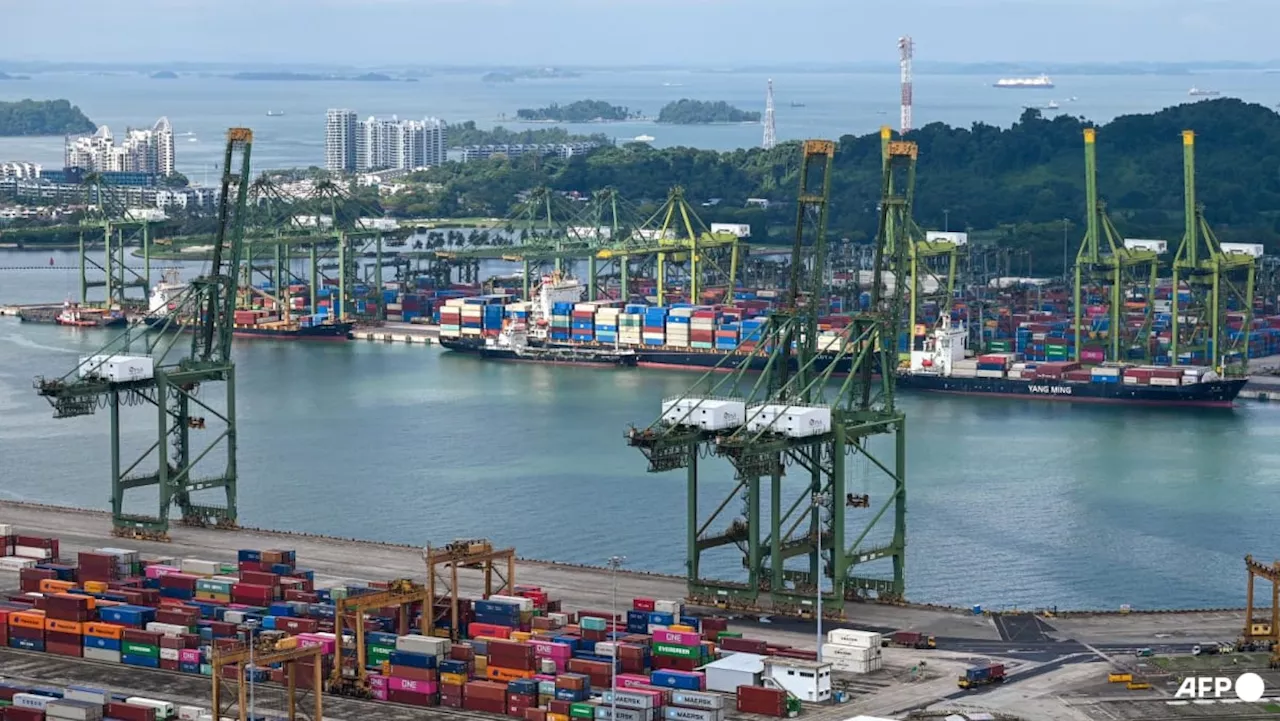 Singapore's Trade Deficit May Offer Protection Against US TariffsSingapore's unique trade deficit with the United States might protect it from direct US tariff impacts, but the country still faces risks from rising global trade tensions. Economists caution that US-led protectionism, characterized by reciprocal tariffs, could indirectly affect Singapore. While Singapore's free trade agreement with the US provides some insulation, the overall trade environment remains uncertain. This article explores the potential implications of US trade policies for Singapore's economy, highlighting both the risks and opportunities.
Singapore's Trade Deficit May Offer Protection Against US TariffsSingapore's unique trade deficit with the United States might protect it from direct US tariff impacts, but the country still faces risks from rising global trade tensions. Economists caution that US-led protectionism, characterized by reciprocal tariffs, could indirectly affect Singapore. While Singapore's free trade agreement with the US provides some insulation, the overall trade environment remains uncertain. This article explores the potential implications of US trade policies for Singapore's economy, highlighting both the risks and opportunities.
Read more »
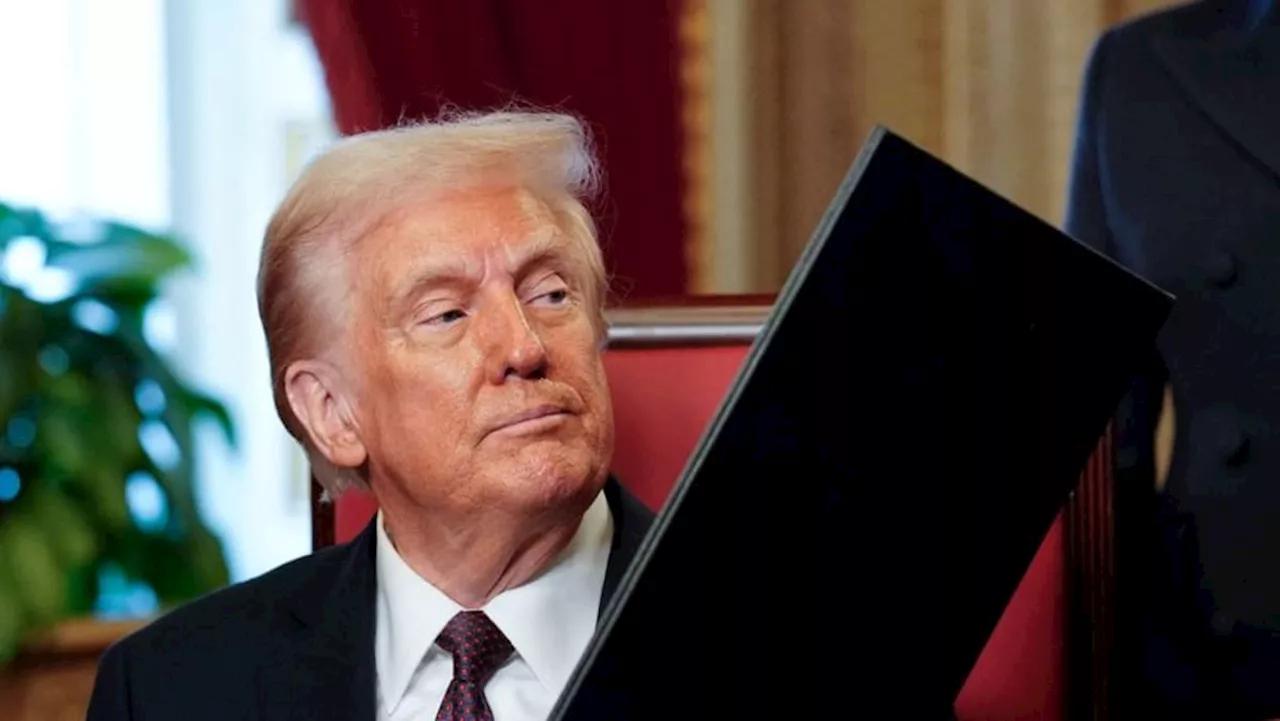 Trump Issues Executive Orders on Immigration, Energy and Trade in 'Shock-and-Awe' EffortNewly sworn-in President Donald Trump initiates a flurry of executive orders on his first day in office, focusing on immigration, energy and trade. The orders include declaring illegal immigration a national emergency, strengthening border security, revoking asylum for illegal border crossers, targeting foreign gang members and designating criminal cartels as foreign terrorist organizations. He also promises to 'drill, baby, drill' and revoke electric vehicle mandates, while withdrawing from the Paris climate agreement. On trade, Trump plans to establish an 'External Revenue Service' to collect tariffs and duties, and direct agencies to investigate trade deficits and unfair trade practices by other nations.
Trump Issues Executive Orders on Immigration, Energy and Trade in 'Shock-and-Awe' EffortNewly sworn-in President Donald Trump initiates a flurry of executive orders on his first day in office, focusing on immigration, energy and trade. The orders include declaring illegal immigration a national emergency, strengthening border security, revoking asylum for illegal border crossers, targeting foreign gang members and designating criminal cartels as foreign terrorist organizations. He also promises to 'drill, baby, drill' and revoke electric vehicle mandates, while withdrawing from the Paris climate agreement. On trade, Trump plans to establish an 'External Revenue Service' to collect tariffs and duties, and direct agencies to investigate trade deficits and unfair trade practices by other nations.
Read more »
 Trump Hits China with New Tariffs, Sparking Trade War FearsDonald Trump's administration has imposed a 10 percent tariff on a wide range of Chinese imports, escalating tensions between the two economic giants. China vows to retaliate, raising concerns about a new trade war. The move comes amid ongoing disputes over trade practices, intellectual property, and China's role in the US fentanyl crisis.
Trump Hits China with New Tariffs, Sparking Trade War FearsDonald Trump's administration has imposed a 10 percent tariff on a wide range of Chinese imports, escalating tensions between the two economic giants. China vows to retaliate, raising concerns about a new trade war. The move comes amid ongoing disputes over trade practices, intellectual property, and China's role in the US fentanyl crisis.
Read more »
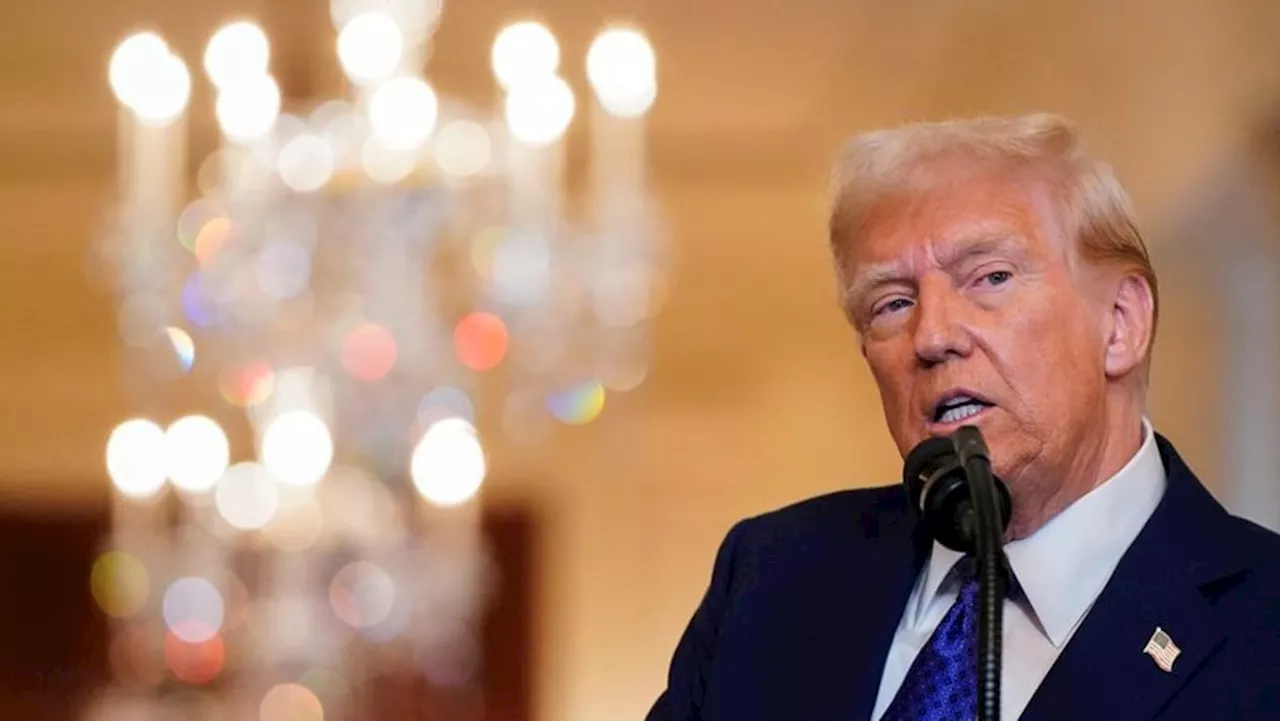 Trump Threatens Tariffs on Canada and Mexico, Triggering Trade FearsUS President Donald Trump is poised to impose 25% tariffs on Canadian and Mexican imports, potentially disrupting $1.6 trillion in trade. Trump demands stronger action against illegal immigration and fentanyl trafficking. While the exact implementation remains unclear, the move threatens the established free trade system and could lead to price hikes for consumers and businesses across North America. Canada and Mexico have prepared retaliatory measures, aiming to target products that would harm US consumers more significantly.
Trump Threatens Tariffs on Canada and Mexico, Triggering Trade FearsUS President Donald Trump is poised to impose 25% tariffs on Canadian and Mexican imports, potentially disrupting $1.6 trillion in trade. Trump demands stronger action against illegal immigration and fentanyl trafficking. While the exact implementation remains unclear, the move threatens the established free trade system and could lead to price hikes for consumers and businesses across North America. Canada and Mexico have prepared retaliatory measures, aiming to target products that would harm US consumers more significantly.
Read more »
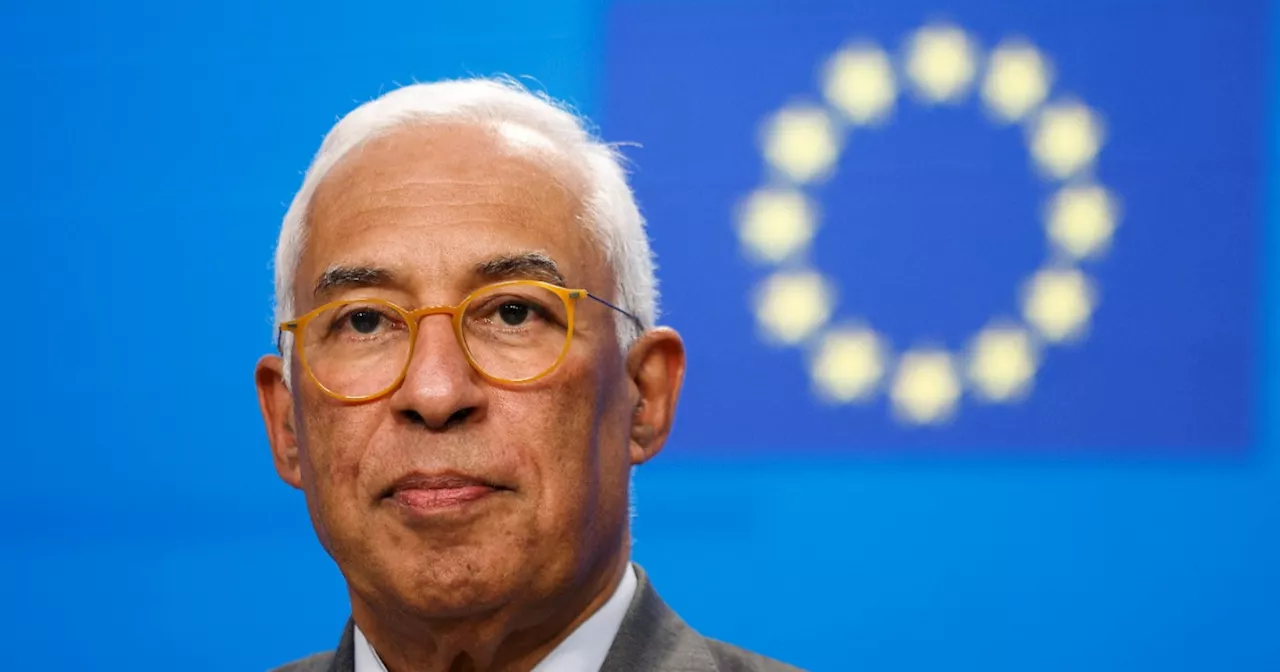 EU Leaders Meet to Strengthen Defenses as Trump's Trade Policies Raise ConcernsEuropean Union leaders convene in Brussels to discuss bolstering the continent's defenses against Russia and navigating the impact of US President Donald Trump's trade policies.
EU Leaders Meet to Strengthen Defenses as Trump's Trade Policies Raise ConcernsEuropean Union leaders convene in Brussels to discuss bolstering the continent's defenses against Russia and navigating the impact of US President Donald Trump's trade policies.
Read more »
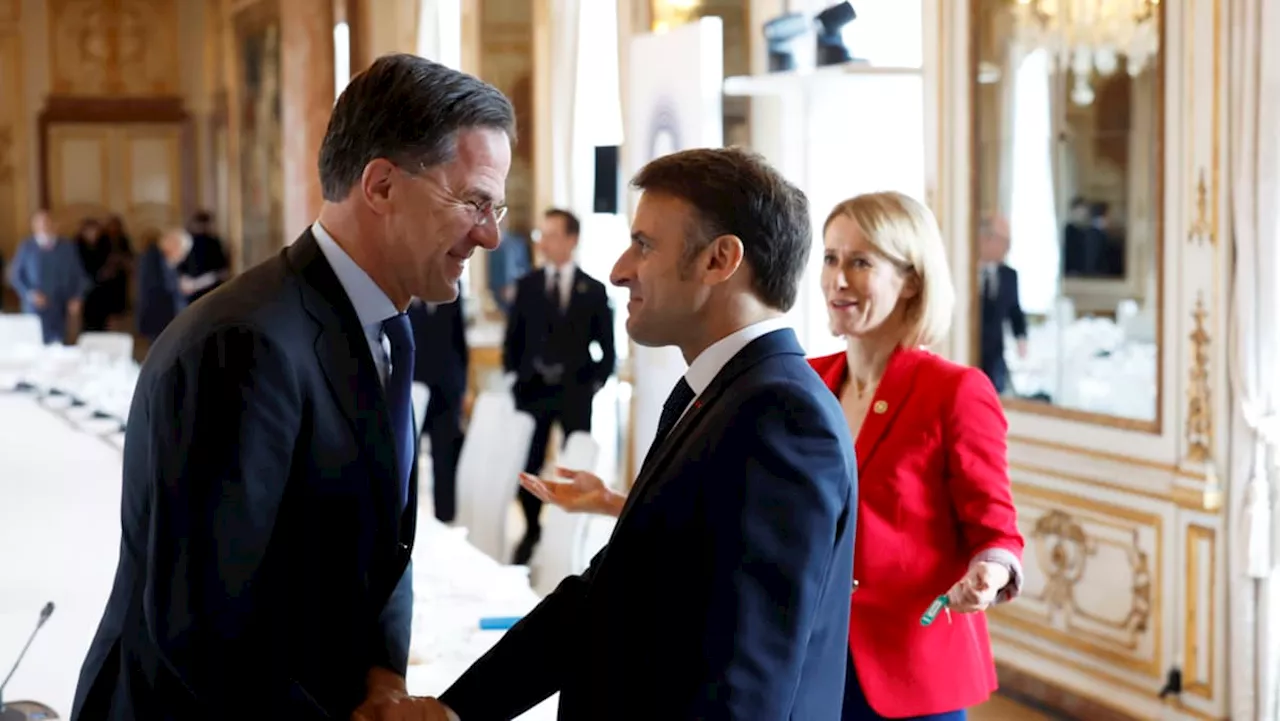 Trade Tensions and Security Concerns Loom Over EU SummitA gathering of European leaders focused on bolstering the continent's defenses against Russia was overshadowed by escalating trade threats from US President Donald Trump. EU officials expressed alarm over Trump's tariffs on Canada, Mexico, and China, coupled with his warnings of potential European targets. The meeting underscored the complex challenge of strengthening European security amid a menacing Russia and uncertainty surrounding US commitments to NATO.
Trade Tensions and Security Concerns Loom Over EU SummitA gathering of European leaders focused on bolstering the continent's defenses against Russia was overshadowed by escalating trade threats from US President Donald Trump. EU officials expressed alarm over Trump's tariffs on Canada, Mexico, and China, coupled with his warnings of potential European targets. The meeting underscored the complex challenge of strengthening European security amid a menacing Russia and uncertainty surrounding US commitments to NATO.
Read more »
